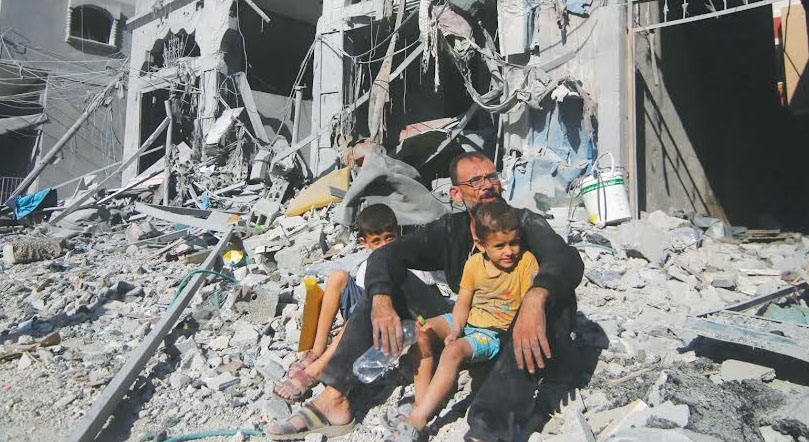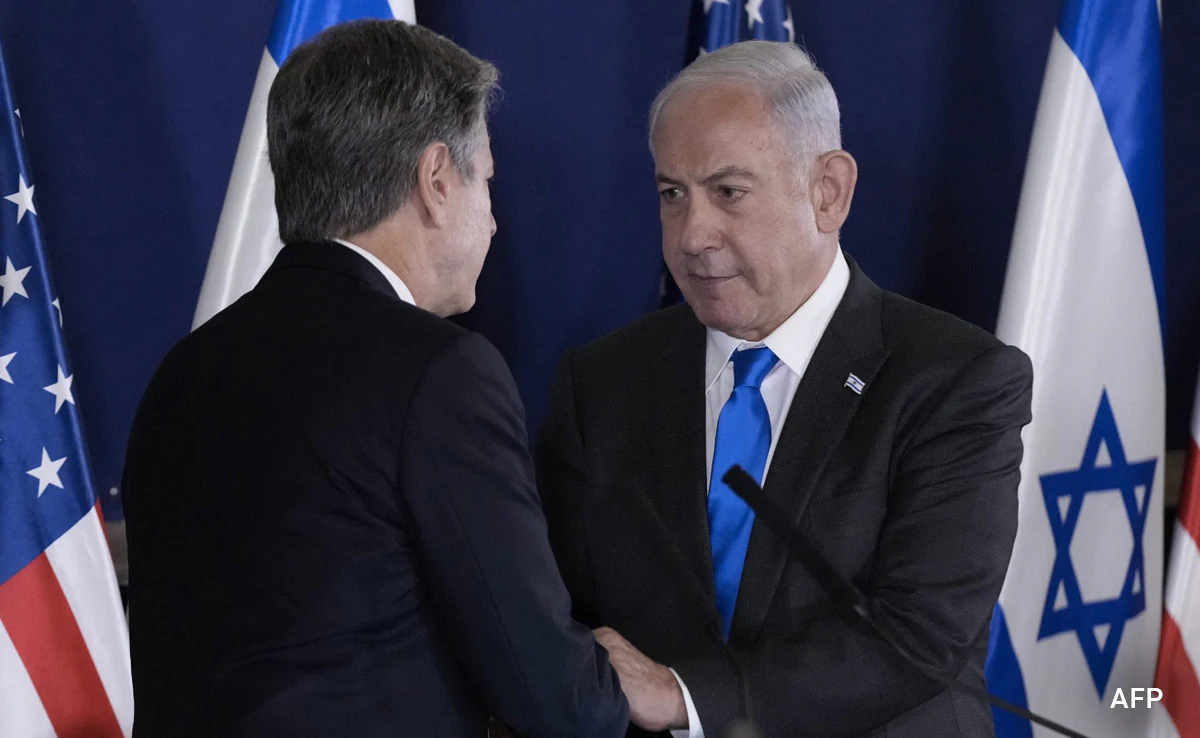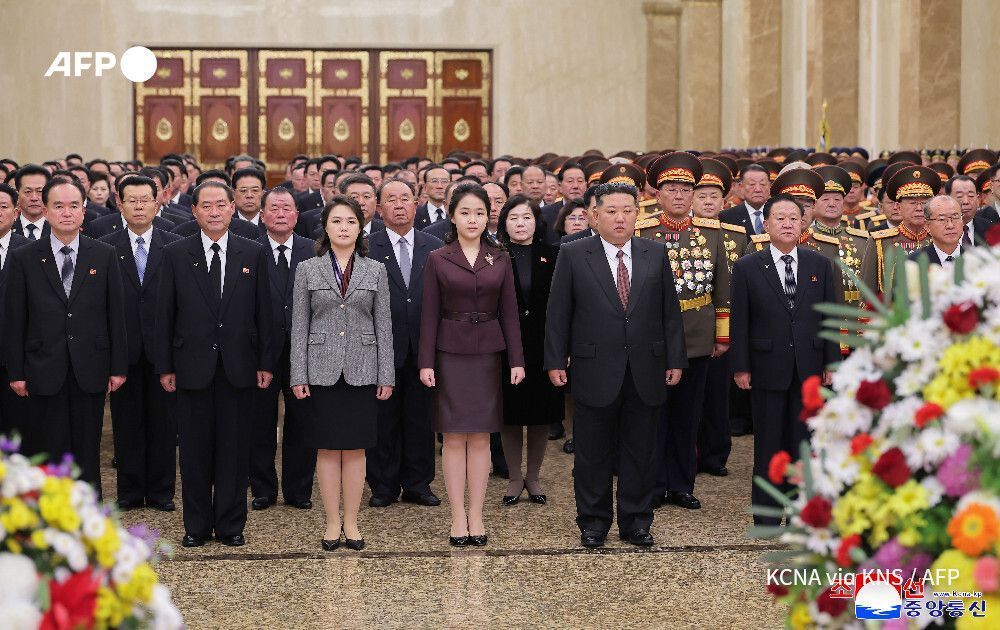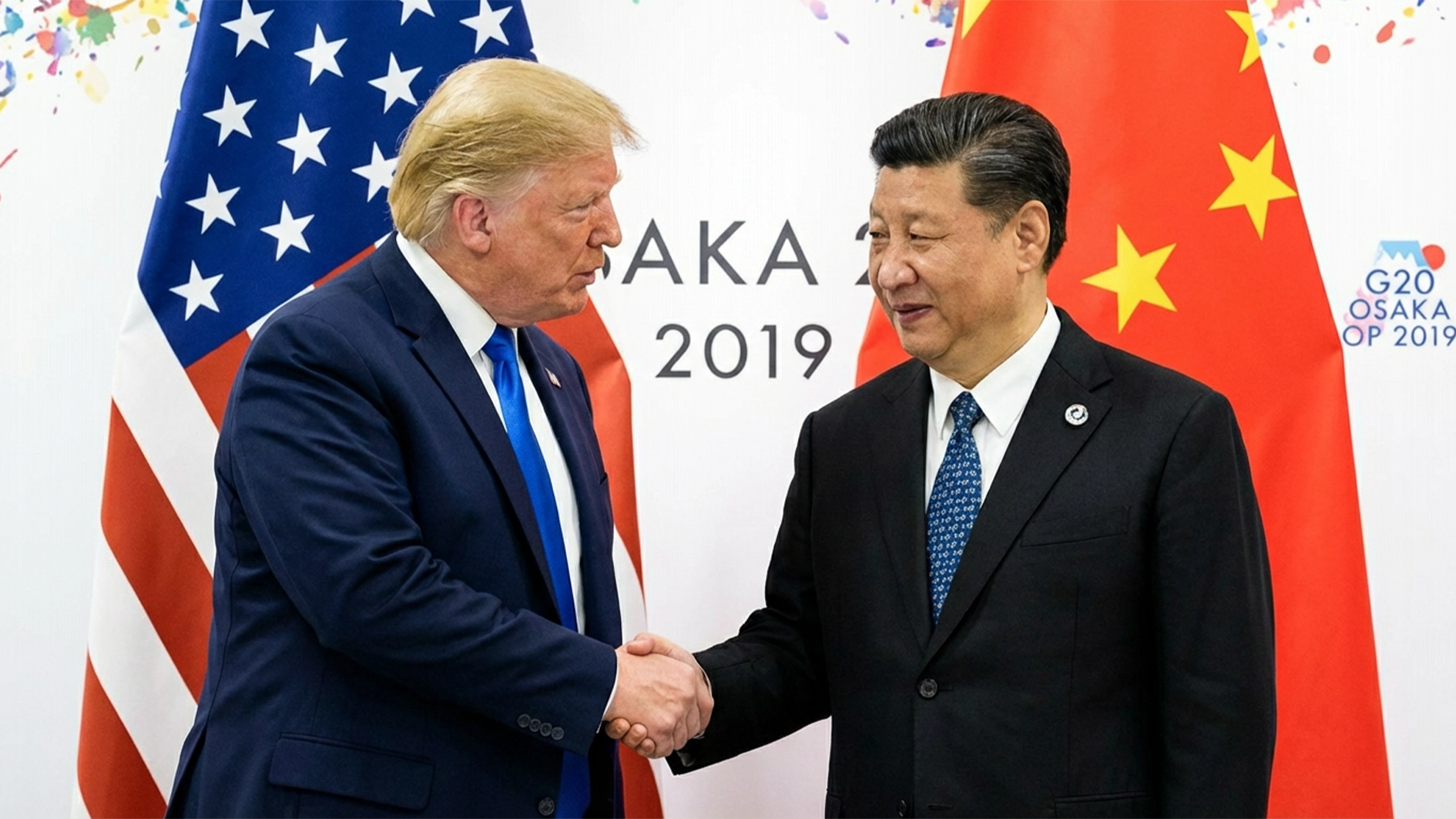
• Over 1,400 killed in Israel, death toll in Gaza rises to 2,670
• UN: One million displaced in one week
• Gaza invasion could lead to genocide, Arab League, African Union warn
• Nigeria mum as 20 nations condemn Israel aggression
• EU leaders back Israel’s right to defend itself
• Pope calls for humanitarian corridors for Gaza residents
As the Israel-Hamas war enters second week, Prime Minister Benjamin Netanyahu convened Israel’s expanded emergency cabinet for the first time yesterday, hailing the country’s national unity on display as Israel gears up to “demolish Hamas” in Gaza despite mounting opposition to the war and calls for ceasefire.
The meeting, held at the military headquarters in Tel Aviv, began with ministers standing for a moment’s silence in memory of the 1,300 Israelis killed in Hamas’ shocking October 7 onslaught.
According to Netanyahu, all ministers were “working round the clock with a united front. Hamas thought we would be demolished. It is we who will demolish Hamas,” he said, adding that the show of unity “sends a clear message to the nation, the enemy and the world.”
The Israeli PM’s office said more than 1,400 people have been killed in Israel since Hamas’ offensive on October 7. “Over 1,400 were killed and over 120 Israelis were abducted by Hamas terrorists,” Tal Heinrich, spokesperson for the prime minister, told journalists.
On the other side of the war, at least 2,670 Palestinians have been killed in Gaza since October 7, the health ministry said, adding that more than 9,600 have been injured in Israeli attacks on Gaza.
The United Nations (UN) on Sunday said more than one million people have been displaced in the Gaza Strip in the last week after the sustained Israeli bombardment and warnings about a ground attack against Hamas commanders.
Israel declared war on the Islamist group last Sunday, a day after waves of fighters broke through the heavily fortified border and shot, stabbed and burned to death more than 1,400, most of them civilians, resulting in seven days of relentless bombing, targeting those who masterminded the attack, but majority of the casualties have been ordinary Palestinians.
“The number is likely to be higher as people continue to leave their homes,” says the United Nations Relief and Works Agency (UNRWA) director of communications, Juliette Touma.
But even as Israel seeks to avenge the worst attack in its history, it faced a grave warning about the security implications of putting boots on the ground in the densely populated enclave, as many in the international community rushed to voice their concerns about the escalation in tensions.
While Israel continues to bomb Gaza and attack Palestinians in the occupied West Bank, several governments have started to turn critical of Israel’s actions — some more directly than others.
Israel’s planned ground invasion of Gaza “could lead to a genocide of unprecedented proportions,” heads of the Arab League and African Union (AU) have said in a joint statement. Both organisations yesterday called on “the United Nations and the international community to stop a catastrophe unfolding in front of us, before it is too late.”
Chairperson of AU, Moussa Faki Mahamat, highlighted the denial of the fundamental rights of the Palestinian people as the main cause of the current tensions. The AU appealed to both parties to end military hostilities and return to the negotiating table.

Already, 20 nations have condemned Israel’s action accusing it of violating international humanitarian law and calling for immediate international intervention to protect the Palestinian people, whose rights it has described as central to the resolution of the conflict.
The countries are Algeria, Belize, Brazil, Colombia, Cuba, Indonesia, Iraq, Iran, Ireland, Kuwait, Morocco, Malaysia, and Maldives. Others are Norway, Oman, Qatar, Russia, Syria, South Africa and Venezuela.
South African President, Cyril Ramaphosa, at the weekend underscored his country’s historic support for the “just struggle” of Palestinians in a public statement, standing with a keffiyeh around his shoulders in front of people holding aloft small Palestinian flags.
“All of us standing here pledge our solidarity with the people of Palestine,” he said.
He described Israel as an “oppressive regime” and pointed to what many human rights groups have described as Israel’s apartheid-like policies towards Palestinians.
Russia, on its part, stressed that the Israeli-Palestinian conflict cannot be resolved by force but through political and diplomatic means. Russia called for an immediate ceasefire, renouncing violence, and a negotiation process with international community assistance to establish lasting peace in the Middle East.
President Vladimir Putin emphasised the “creation of an independent Palestine state with East Jerusalem as its capital” to resolve the issue. Moscow has also refused to list Hamas as a “terrorist” organisation following similar steps taken by France and the European Union last week.
While vacillating on taking a stand and position in the conflict, Nigeria’s foreign affairs minister, Yusuf Tuggar, had only voiced a faint call for ceasefire between Israel and Hamas on the second day of the war.
However, the European Union (EU)’s national leaders have backed Israel’s right to defend itself in line with humanitarian and international laws, they said in a statement.
“The European Union condemns in the strongest possible terms Hamas and its brutal and indiscriminate terrorist attacks across Israel and deeply deplores the loss of lives,” said the statement from the European Council, which brings together leaders of the bloc’s 27-member countries.
While many EU leaders have issued statements on the Hamas attack since it took place, yesterday was the first by the European Council as a whole.
“There is no justification for terror. We strongly emphasize Israel’s right to defend itself in line with humanitarian and international law in the face of such violent and indiscriminate attacks,” the statement added.
“We reiterate the importance of ensuring the protection of all civilians at all times in line with International Humanitarian Law.”
Also, Pope Francis called on Sunday for humanitarian corridors to allow the delivery of essentials to the Gaza Strip, which is under heavy Israeli bombardment following a bloody attack by its rulers, Hamas.
Alarm has grown about a humanitarian crisis in Gaza, where Israel has cut off water, food and power, vowing to maintain the complete siege until all hostages taken by the Palestinian Islamist militant group are freed.
“Humanitarian law must be respected, especially in Gaza, where it is urgent and necessary to guarantee humanitarian corridors and help the population,” said the Pope after his traditional Angelus prayer in Rome’s Saint Peter’s Square.”
“I strongly urge that children, the sick, the elderly, women and all civilians should not fall victim to the conflict”, he added.
“There have already been so many deaths, please let’s not shed any more innocent blood, not in the Holy Land, not in Ukraine, not anywhere else. Enough is enough. War is always a defeat,” he said, castigating “the diabolical force of hatred, terrorism and war”.
Israeli forces were on Sunday readying for a ground invasion of Gaza. Pope Francis also renewed his call “for the release of the hostages” kidnapped by Hamas fighters in southern Israel.
He invited “all believers to unite in prayer with the Church in the Holy Land” on Tuesday.






